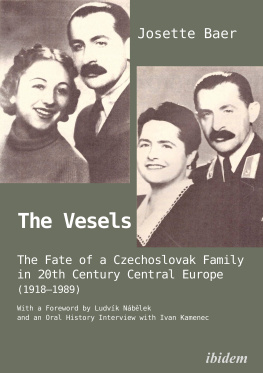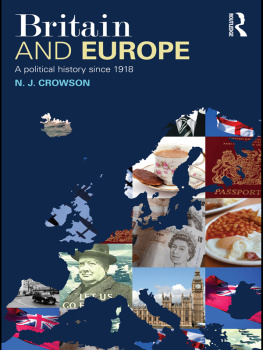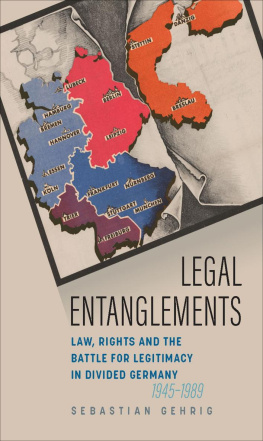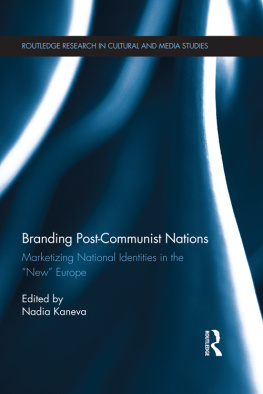The Communist Quest for National Legitimacy in Europe, 1918-1989
There are two popular myths concerning the relationship between communism and nationalism. The first is that nationalism and communism are wholly antagonistic and mutually exclusive. The second is the assertion that in communist Eastern Europe nationalism was oppressed before 1989, to emerge triumphant after the Berlin Wall came down. Reality was different. Certainly from 1945 onwards, communist parties presented themselves as heirs to national traditions and guardians of national interests. The communist states of Central and Eastern Europe constructed socialist patriotism, a form of loyalty to their own state of workers and peasants. Up to 1989, communists in Eastern Europe sang the national anthem, and waved the national flag next to the red banner. The use of national images was not the exception, but the rule. From Cuba to Korea, all communist parties attempted to gain national legitimacy. This was not incidental or a deviation from Marxist orthodoxy, but ingrained in the theory and practice of the communist movement since its inception.
The study of communist national legitimacy is an exciting new field. This book presents examples of communist attempts to co-opt nationalism from both sides of the iron curtain and lays bare the striking similarities between such diverse cases as the socialist patriotism of the Bulgarian Communist Party and the national line of the Portuguese communists, between Romanian communist nation building and the national ideology of the Spanish Communist Party.
This book was published as a special issue of Nationalities Papers.
Martin Mevius was educated at the universities of Oxford (D.Phil.), Cambridge (M.Phil.), and Amsterdam (MA). He published his first monograph, Agents of Moscow: The Hungarian Communist Party and the Origins of Socialist Patriotism, 1941-1953 (Oxford: OUP 2005) to critical acclaim. He has also published widely as a journalist in the Dutch and British media, among others for The Guardian and Private Eye. Presently he is a postdoctoral researcher at the University of Amsterdam.
The Association for the Study of Nationalities
www.nationalities.org
Edited by
Karl Cordell, University of Plymouth
Florian Bieber, University of Kent, Canterbury
Stefan Wolff, University of Nottingham
The books in this series focus on the dynamics and interactions of significant minority and majority nationalisms in the context of globalisation and their social, political and economic causes and consequences. Each book is focused on an important topic drawn from the rigorously peer-reviewed articles published in Nationalities Papers and Ethnopolitics, and includes authoritative theoretical reflection and empirical analysis by some of the most widely recognized experts in the world.
Nationalities Papers
Conflict in South-Eastern Europe at the End of the Twentieth Century
A Scholars Initiative assesses some of the controversies
Edited by Thomas Emmert and Charles Ingrao
Identities, Nations and Politics After Communism
Edited by Roger E. Kanet
Crimes of State Past and Present
Government-Sponsored Atrocities and International Legal Responses
Edited by David M. Crowe
The Communist Quest for National Legitimacy in Europe, 1918-1989
Edited by Martin Mevius
Ethnopolitics
Gambling on Humanitarian Intervention
Edited by Timothy W. Crawford and Alan J. Kuperman
Ethnopolitics of Elections
Edited by Florian Bieber and Stefan Wolff
Internationalized State-building after Violent Conflict
Bosnia Ten Years after Dayton
Edited by Marc Weller and Stefan Wolff
Governance in Ethnically Mixed Cities
Edited by Sherrill Stroschein
Transnationalism in the Balkans
Edited by Denisa Kostovicova and Vesna Bojicic-Dzelilovic
Cultural Autonomy in Contemporary Europe
Edited by David J. Smith and Karl Cordell
EU Conflict Management
Edited by James Hughes
First published 2011 by Routledge
2 Park Square, Milton Park, Abingdon, Oxon, OX14 4RN
Simultaneously published in the USA and Canada
by Routledge
711 Third Avenue, New York, NY 10017
Routledge is an imprint of the Taylor & Francis Group, an informa business
First issued in paperback 2013
2011 Association for the Study of Nationalities
This book is a reproduction of Nationalities Papers, vol. 37, issue 4. The Publisher requests to those authors who may be citing this book to state, also, the bibliographical details of the special issue on which the book was based
Work on this volume has been made possible thanks to funding by the Netherlands Organisation for Scientific Research (NWO) and the Department of History, Archeology and Regional Studies at the University of Amsterdam.
Typeset in Times New Roman by Value Chain, India
All rights reserved. No part of this book may be reprinted or reproduced or utilised in any form or by any electronic, mechanical, or other means, now known or hereafter invented, including photocopying and recording, or in any information storage or retrieval system, without permission in writing from the publishers.
British Library Cataloguing in Publication Data
A catalogue record for this book is available from the British Library
ISBN13: 978-0-415-58712-9 (hbk)
ISBN13: 978-0-415-85100-8 (pbk)
Martin Mevius*
There are two popular myths concerning the relationship between communism and nationalism. The first is that nationalism and communism are wholly antagonistic and mutually exclusive. The second is the assertion that in communist Eastern Europe nationalism was oppressed before 1989, to emerge triumphant after the Berlin Wall came down. Reality was different. Certainly from 1945 onwards, communist parties presented themselves as heirs to national traditions and guardians of national interests. The communist states of Central and Eastern Europe constructed socialist patriotism, a form of loyalty to their own state of workers and peasants. Up to 1989, communists in Eastern Europe sang the national anthem, and waved the national flag next to the red banner. The use of national images was not the exception, but the rule. From Cuba to Korea, all communist parties attempted to gain national legitimacy. This was not incidental or a deviation from Marxist orthodoxy, but ingrained in the theory and practice of the communist movement since its inception.
Myths on Communism and Nationalism
The notion that communism and nationalism are polar opposites derives from the protagonists themselves. Nationalists passionately dismissed the thought that communists could be national or patriotic in any way. Opponents dismissed communists as foreign agents of Moscow; Nazi propaganda, for instance, presented communism and the USSR to be fundamentally alien Jewish inventions.1 Communists for their part rejected the charge that they were unpatriotic, supported minority rights and liberation of oppressed peoples, but vehemently denied (and still reject) the idea that communism has anything to do with nationalism.2 What adds to the confusion is the communist tendency to accuse opponents both inside and outside the movement of crimes such as chauvinism, bourgeois nationalism or national deviationism. These statements have been taken at face value, especially in the media. The idea of national communism ought to be a contradiction in terms, writes










